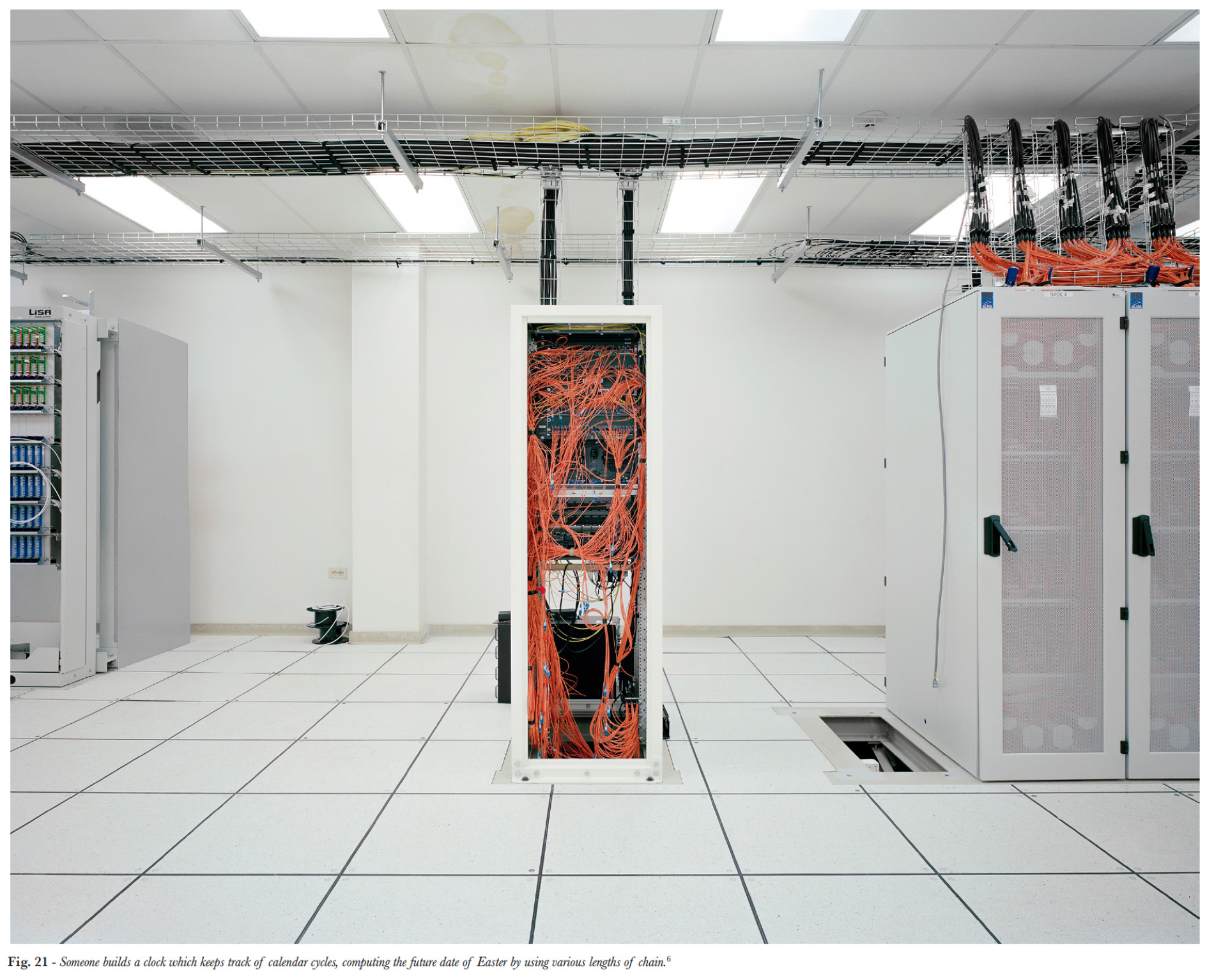The Scientific Instrument and The Camera:
Poetic and Radical Documentary and the invisibility of contemporary technology
Mark Kasumovic
A Human Laboratory is an artist publication consisting of one-hundred photographs taken during site visits to thirty-five international scientific research centres, laboratories and field stations over the course of five years. Photographs within the book are accompanied by scientific facts that have been decontextualised and anonymised, though chosen for their supposed connection to the imagery. By considering the scientific laboratory with regards to the relatively banal electronic components that are so undecipherable in photographs, the symbolic nature of scientific instruments and inquiry can be made apparent via: (1) the repeated notion that human knowledge is indeed heavily codified and increasingly intangible (dare I say, inhuman), and (2) such physical spaces represent the ever “black-boxing” of knowledge construction within culture.
If the primary tool we collectively rely on to understand our visual world is so inadequate for describing contemporary visual reality, it sincerely amplifies the Baudrillardian notion that we are enveloped within a reality that has little relationship with the material forms that surround us. This problem challenges image makers to move beyond limited and traditional representations and put to work fresh symbolic languages that can reflect a shifting reality. Poetic and radical photographic documents are armed with such potent functions. These categories specifically—which will be elucidated in this paper—via a politic of incoherence, can employ the inventive notions of radical experimentation towards novel interconnections that philosopher Paul Feyerabend espouses in a visual way. Poetic and radical documentary photographs—again given their political incoherence—can further be used and reused in varying contexts and forms to develop meaning in surprising and unanticipated ways.
If the primary tool we collectively rely on to understand our visual world is so inadequate for describing contemporary visual reality, it sincerely amplifies the Baudrillardian notion that we are enveloped within a reality that has little relationship with the material forms that surround us. This problem challenges image makers to move beyond limited and traditional representations and put to work fresh symbolic languages that can reflect a shifting reality. Poetic and radical photographic documents are armed with such potent functions. These categories specifically—which will be elucidated in this paper—via a politic of incoherence, can employ the inventive notions of radical experimentation towards novel interconnections that philosopher Paul Feyerabend espouses in a visual way. Poetic and radical documentary photographs—again given their political incoherence—can further be used and reused in varying contexts and forms to develop meaning in surprising and unanticipated ways.

